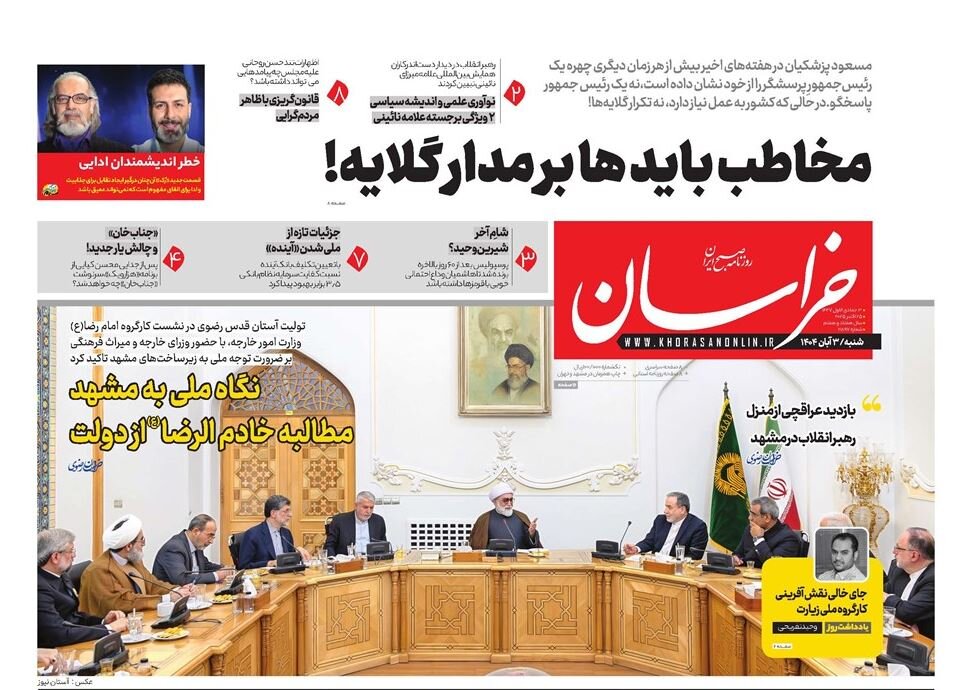Slim prospects for a breakthrough in Iran–Europe relations

TEHRAN - In an interview with Ham Mihan, European affairs expert Morteza Makki assesses the outlook for Iran’s engagement with the European troika as not promising.
Makki says: Europe currently lacks the strategic capacity to assert an independent role in the Middle East. Even if European governments were inclined to adopt a more flexible posture toward Iran, their deep economic, political, and security dependence on the United States renders such autonomy unattainable. As long as Europe remains aligned with the unilateral policies of Washington and Tel Aviv, it cannot pursue a distinct approach toward Tehran. European demands mirror those of the United States: curbing Iran’s nuclear program, limiting its missile capabilities, and removing enriched uranium from the country. These demands continue to serve as political leverages to alter Iran’s behavior. Given this harsh stance, the prospect of a meaningful opening in Iran–Europe relations appears remote.
Khorasan: Challenging Washington’s monopoly on global authority
Khorasan analyzed the recent joint letter by Iran, Russia, and China declaring the expiration of UN Security Council Resolution 2231. The newspaper says: The move marks a pivotal moment in the erosion of U.S. dominance over global governance and a critical test for Iranian diplomacy. For decades, Washington has invested vast political, military, and media resources to position itself as the ultimate arbiter of international order. The joint initiative by three non-Western powers—two of them major global actors—represents an unprecedented challenge to this narrative (the erosion of the U.S. domination). It disrupts the continuity of American power projection and signals to the international community that the era of Washington’s unilateral imposition of its will as international law may be drawing to a close. This coordinated action marks the first formal effort by Iran, Russia, and China to contest the authority of the United States within the framework of the Security Council. It may herald a new phase in the reconfiguration of global power dynamics.
Arman-e-Melli: Middle East enters a phase of strategic ambiguity
Arman-e-Melli has described the current state of the Middle East as one of “complete ambiguity.” It said: While active warfare has subsided in parts of the region, the shadow of war looms over Iran, Gaza, Lebanon, and Yemen, and the Middle East is in a suspended and ambiguous state. With the continued deadlock on the Ukraine issue and the deadlock in diplomacy between the U.S. and Iran, it can be expected that the Middle East region will undergo new developments. Despite the recent 12-day war and attacks on the nuclear facilities, Iran’s nuclear program remains intact, and its activities appear to be continuing. The nuclear file, like much of the region’s strategic posture, remains opaque. With diplomatic channels between Tehran and Washington effectively blocked, the risk of renewed military confrontation against Iran and Lebanon has increased. It is unlikely that Israel will accept the current status quo indefinitely. The imagination that the war with Iran is over or improbable is premature. The possibility of renewed conflict remains real and immediate. From a macro-strategic perspective, the Middle East is in a holding pattern, marked by volatility, unresolved tensions, and the prospect of three more difficult years ahead.
Iran: IAEA’s approach is affected by geopolitical competition
The Iran newspaper wrote that the technical body of the International atomic Energy Agency is under the influence of geopolitical rivalries. It said: The global order is undergoing a structural shift from unipolarity to multipolarity, driven by the rise of new powers such as China, Russia, and India, alongside assertive regional actors like Iran and Turkey. This transformation has turned international institutions into arenas of geopolitical and economic competition. Within this evolving landscape, the International Atomic Energy Agency has not remained immune. Its traditional neutrality has been undermined, and its institutional independence and professional credibility have come under strain. As a result, trust in the Agency’s impartiality has diminished among several member states, including the Islamic Republic of Iran. Despite the collapse of the Cairo Agreement following the activation of the snapback mechanism, Iran has reiterated its willingness to consider new cooperation frameworks with the Agency. This stance reflects Tehran’s continued commitment to diplomacy and engagement within multilateral institutions. In the context of a shifting international order, maintaining technical dialogue with the IAEA is not merely a diplomatic gesture; it is a strategic imperative for managing crises and restoring confidence in global governance.
Leave a Comment